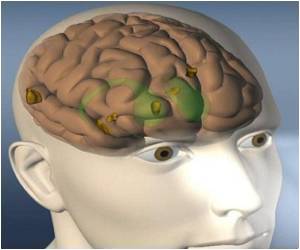Dr Steve Vucic, from Neuroscience Research Australia, says the test will allow people with the motor neurone disease to be diagnosed up to eight months earlier than is currently possible.

“At the moment, we diagnose motor neurone disease using clinical signs, but it can take months to satisfy this criteria,” he says.
“If we can diagnose motor neurone disease earlier, we can initiate treatment much earlier and improve the patient’s quality of life. This may also translate into better efficacy of the medication used to treat motor neurone disease.”
The motor neurone disease is a degenerative disease that causes rapidly progressive muscle weakness. The disease affects nerve cells, called motor neurons, that control the muscles for moving, speaking, breathing and swallowing.
It typically affects people in their mid-50s and is universally fatal; survival is approximately 2-5 years from the onset of symptoms. Although there is currently no cure, a medication called riluzole slows the progression of the disease.
In the early stages of motor neurone disease, the level of electrical activity in the brain increases. The new diagnostic test, called threshold tracking transcranial magnetic stimulation (TTTMS), employs magnetic stimulation to measure this ‘cortical hyperexcitability’ in the brain.
Dr Vucic says this new technique is faster and more precise than older techniques to measure cortical hyperexcitability and will allow clinicians and researchers to discriminate between motor neurone disease and conditions that can look similar.
“This will help give patients some certainty,” says Dr Vucic. “Motor neurone disease is a life sentence, whereas some of these other conditions are treatable.”
The technique will also allow people diagnosed with motor neurone disease to participate in drug trials at an earlier stage in their disease.
“This will greatly assist our research in trying to find more effective treatments for this tragic disease,” says Dr Vucic.
Dr Vucic says the next stage is for the technique to be validated by other research groups.
The study was published in the journal Clinical Neurophysiology.
Source-Medindia






